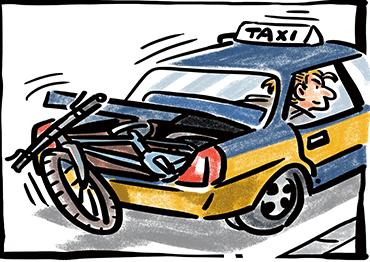Facebook group called Beijingers Abroad has caught fire, with more than 13,900 members as of the time of this writing, with membership rising as fast as skyscrapers in the capital circa 2007.
Scrolling through the group brings a tremendous sense of nostalgia, with many photos of places that don’t exist anymore except in our memories.
Some of the photos in the group date back to the 1980s, highlighting the incredible changes China has witnessed in recent decades. Every 10 years, Beijing seems to have changed completely.
The drinking spots where foreigners hung out in Beijing in the 2000s are mostly demolished. For that matter, so are most of the hutong courtyard homes in the photos. Those that survive are gentrified and upgraded, including, thankfully, the old squat toilets. I was a little bit surprised by how many expats fondly recall squatting in the loo, with a cigarette and newspaper.
People also reminisce fondly about Beijing’s food, especially dumplings, spicy malatang skewers of unknown meat soaked in oil from the Qing Dynasty, and jianbing savory crepes. Kung pao chicken got a special thread. For some reason, barbecue lamb skewers are most often referred to with Chinese characters, perhaps because it is one of the first words foreigners learn to read, and the easiest to write.
To my surprise, many foreigners, especially from Eastern Europe and Asia, talked about Beijing as the place they first became acquainted with Western fast food chains like KFC. According to a survey in the group, most people gained weight in the city.
A lot of the posts refer to the carefree lifestyles of an expat, especially the liberating feeling of being free from the strictures and norms of your own culture. This allowed people to reinvent themselves.
One poster noted, “You weren’t part of the society and never really would be and that lack of responsibility led to a wonderful feeling of freedom that I miss.”
It is easy to forget how loose things used to be. Take getting a driver’s license for example. Back in the day, a lot of people mentioned they found ways to avoid taking a test at all. It’s almost impossible to imagine that happening now.
People fondly recalled giant dance parties on top of the Great Wall, or Halloween parties on the Line 2 subways cars that looped around the city over and over.
Some people referred to Beijing as a magical place like the Parisian Left Bank in the 1920s. I think the only common ground is there were lots of young people far from home drinking more than they should and having lots of fun in ways they will only obliquely refer to after they start a family.
Of course, the good times could not go on forever. This is a group of people who moved away, after all.
The most common reason people gave for leaving the city was air pollution. A number of people mentioned getting mystery lung ailments. Fortunately, the skies have become a lot clearer since the darkest days of the Airpocalypse in the early 2010s, particularly before important events.
Many people followed their careers to other cities, while some felt their medical needs could be better handled elsewhere. Other people said they had simply had enough.
A sizable number of people in the group didn’t choose to leave China and still consider it their home, but cannot return until Covid-19-related travel restrictions ease.
In my memory, the foreigners living in Beijing, particularly during their first few years, complained all the time, about everything. Looking back, this was clearly a reaction to culture shock, and people who decided to stay long term got over it.
People also complained about each other. Local expat magazine The Beijinger ran message boards, which could be particularly nasty places, and it was on one of them I first witnessed someone being “doxxed” - their private information was revealed in a bullying attempt as part of an ongoing flame war.
That spirit has come back to the group too, with admonitions from the moderators to keep content positive and a controversy over one of the members getting banned.
One of the best gifts that time brings is remembering the good times, while the bad times fade away.
I’ll chose to remember the kind taxi driver who put my rental bicycle in the back of his car and drove me home when I got lost just after arriving in the capital, and not the motorist who knocked me down and gave me 200 yuan to fix my bike. The bills were counterfeit.
The awesome food markets, retirees dancing in parks and fluffy poplar “tree sperm” floating through the air in the spring live on in people’s memories, as they continue their lives in other parts of China or other parts of the world.

 Old Version
Old Version